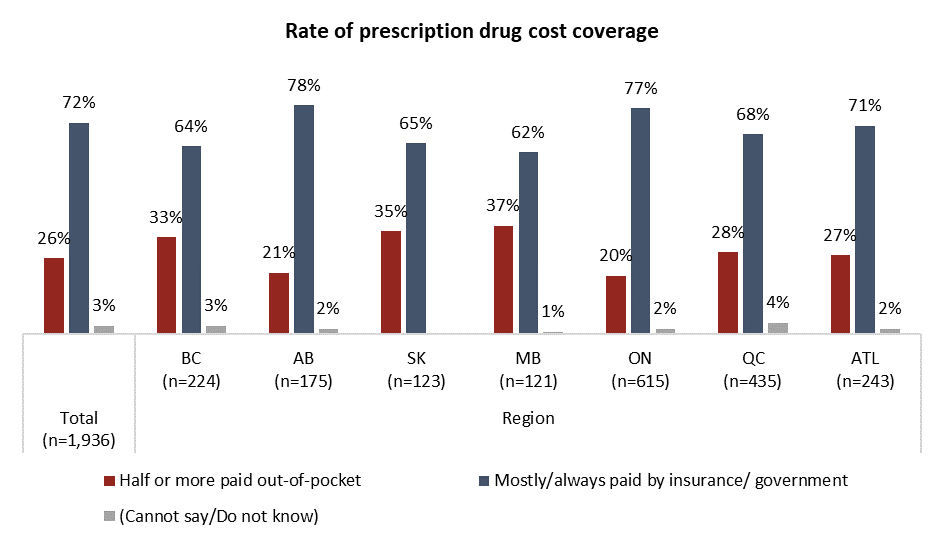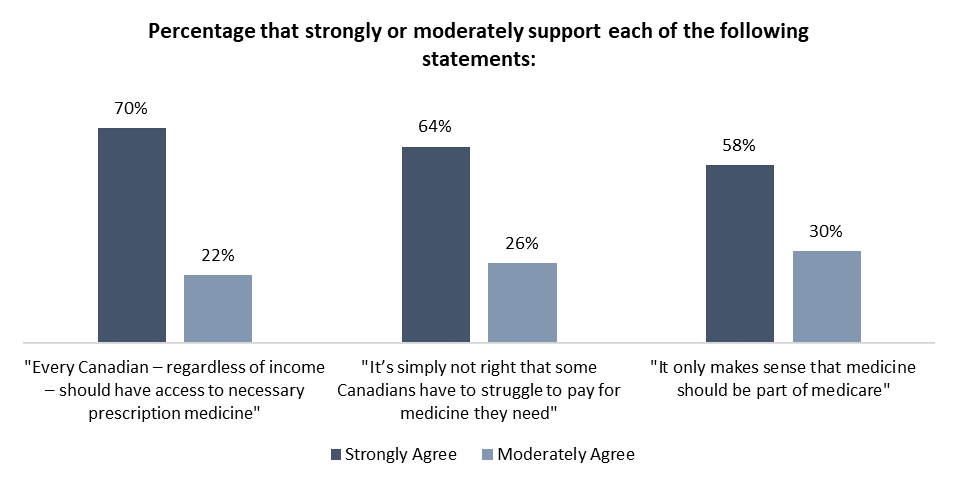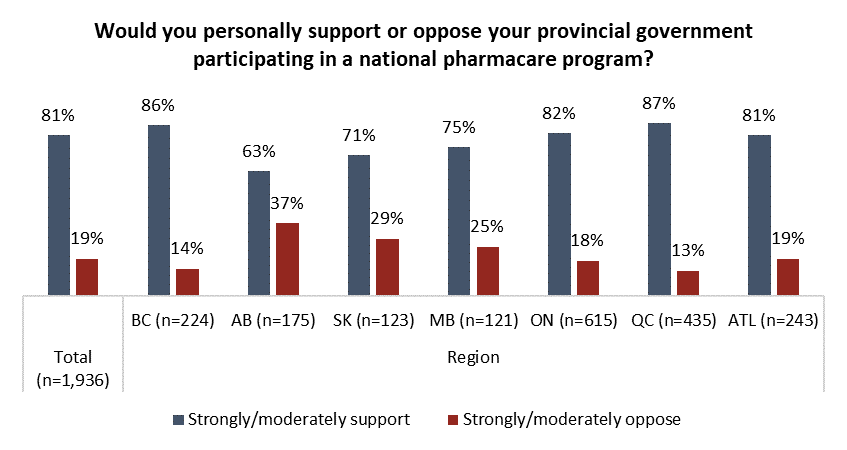More and more Canadians are now supporting a universal program that offers access to prescription drugs through the nation’s health care system.
A recent survey from the Angus Reid Institute found that a byproduct of the COVID-19 pandemic has been more people recognizing a need for pharmacare as a policy.
The concept of government providing universal access to prescription drugs found “strong” support by 57 per cent of respondents and “moderate” support from 29 per cent.
Only 7 percent strongly opposed a pharmacare initiative while the remaining 7 per cent were “moderately” opposed to it.
The study also found that over the past year, more than one-in-five Canadians decided not to fill or renew a prescription due to costs, or taken measures to extend it because they could not afford to keep the recommended dosage schedule.
In the past year, during the pandemic, 14 per cent of Canadians say they lost prescription drug coverage, while just 7 per cent say they gained it.
While most people say their prescription drugs are covered under insurance plans, British Columbia was found to have the highest percentage of residents who pay half or more of those costs out of pocket.

The study also found that those who earn the least income are most likely to pay out of pocket for their medicines.
Among those who earn less than $50K per year, 37 per cent say they paid out of pocket for their prescription drugs; meanwhile, only 15 per cent of those who earn over $100K did the same.
Provincially, Ontario residents pay the least out of pocket for prescription drugs, which Angus Reid Institute attributes to the fact that the province offers comprehensive public drug coverage for seniors and children and youth under 25 years old.
The rates of those paying $500 or more are highest in British Columbia, Saskatchewan, and Quebec.
B.C. is also where residents reported facing drug cost problems the most, with three-in-ten respondents saying they either decided not to refill their prescriptions or stretched prescriptions because of out-of-pocket costs.
The disparity is also clear between white people and visible minorities. 36 per cent of respondents belonging to minority groups reported that members of their household skipped or stretched prescriptions because of costs, compared to one-in-five white respondents.
These findings also corresponded with how many people support a universal pharmacare plan.
Nearly all survey respondents agreed, to some extent, that every Canadian, regardless of income, should have access to necessary prescription medication.

Among those who earn between less than $25K to $50K per year, 89 per cent strongly supported the idea of their provincial government participating in a national pharmacare program.
However support for this concept was fairly unanimous across all income levels, with 83 per cent of the top earners agreeing as well.
At a provincial level, support for universal pharmacare is highest among B.C. and Quebec residents, and lowest in the prairies.

The Angus Reid Institute conducted this online survey from October 13 – 18, 2020 among a representative randomized sample of 1,936 Canadian adults who are members of Angus Reid Forum.
For comparison purposes only, a probability sample of this size would carry a margin of error of +/- 2.2 percentage points, 19 times out of 20. Discrepancies in or between totals are due to rounding.
Click here to read the full report.


